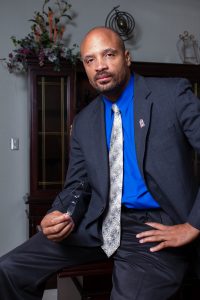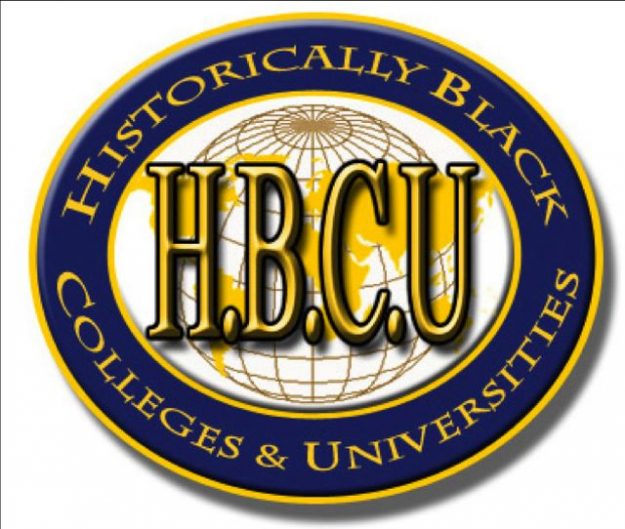 Subscribe
Subscribe- Login
-
/
Sign Up
 A few years ago I happened to spark a conversation with a young lady working part-time in a department store.
A few years ago I happened to spark a conversation with a young lady working part-time in a department store.
Through our conversation, I learned she was a graduate student in a non-technical field. I asked her, “What are you doing? Better yet, what do you want to do?”
We continued conversing, and at the end of our chat, she had decided to enroll in a Masters in Computer Science program. She knew she would have to take some bridge courses to get herself up to speed in computer science, but she was resolute in her decision.
Now, this young lady is preparing to graduate and has already received a full-time position with the Department of Defense!
I saw her recently, and she excitedly explained all of the different programming languages she knows now. Can you believe she went from working part-time at Staples to working full-time with a Masters in Computer Science, making a substantially higher salary and doing much more significant things, in just three years?
That was a life-changing conversation.
We as educators have the ability to influence thousands of people in the same manner. We can have that level of impact on every student that enters our institutions each year.
At Alabama A&M, we have 1100 students in our engineering college, and we impact that number every year.
I’ve been fortunate to have conversations with this new crop of students, and they’re hungry. They’re excited and ready to be empowered so they can make significant differences in society. That’s where they need our guidance and influence as educators.
Think of these students as allegorical vessels. Each one will have his/her own opportunity to hold valuable material, and each will pour out what was most valuable to him/her for others to use.
Everyone needs someone else to help bring that out. As educators, we have the ability and responsibility to lead these students and create new opportunities that give them a chance to be the best at whatever they want to do.
They are in an amazing position to change the world and impact society greatly. Likewise, we are in a great position to impact how they see the world by building them up with the tools of education, integrity, and character. This is such an exciting time to be a STEM educator and advocate!
By definition, education is a transference and infusion of knowledge into our students. This is transformative in itself because that knowledge will cause them to make decisions about the course of their lives: how much knowledge they obtain, what they ultimately do with it, and what good or harm they will cause.
This is built into the knowledge they have and their ability to navigate and use it in the world they live in, regardless of their circumstances or upbringing.
Particularly at HBCUs, many of us build upon a mission of impacting society and providing educational opportunities for many who would not normally have them. We will encounter students who come from all ranges and backgrounds: poor families, first-generation college students, and the list goes on.
True transformation, I believe, begins with having access to the tools of opportunity—in our case, that is knowledge through education.
Knowing this, we as STEM educators have to know that we are not training students to take tests and make grades. We are equipping students to become professionals within various fields that are prepared with the expertise, poise, and communication ability to work with others and positively impact society and the world around them. That is the transformative change we are making.
It used to be said that technology will shape our future. But that’s no longer a statement for a time far off. That time is now. Every industry in our world is impacted by technology. We are building more and more of our society on the stool legs of science, technology, engineering, and mathematics.
Cybersecurity, for example, impacts food, water, power, transportation, financial institutions and communication applications. If we don’t build a strong workforce of engineers, technologists, and scientists to handle those needs, our society will topple over.
Our students can be that generation of STEM professionals, and we can—and should—be the educators to empower them.
I started out at an HBCU.
I was shaped into having the confidence and ability that I could be smart, that I could learn, and that I could make an impact on the people and world around me. I gained all of that at Alabama A&M. Those hungry, excited students I mentioned earlier? That was me 35 years ago.
Being back as a dean, I know my mission is to help shape educational opportunities for every student that chooses to make Alabama A&M home.
I know there is a responsibility for students walking through our doors to embrace what is given to them, and to take it as far as they can go. But there is also a responsibility for us as educators to instill in them the notion that they can do and be anything and to believe in them as the innovators and pathfinders that they are.
With the right incentives and genuine support, we will all be able to positively shape and impact an informed, prepared and globally aware society.
That is how true transformation will work.
Chance Glenn began his engineering career at the Army Research Laboratory in Adelphi, MD, where he designed microwave and radio frequency devices for a range of defense-related applications. There he also became involved in signal processing and the study of nonlinear dynamical systems. He began publishing, presenting, and submitting patent applications even before completing his undergraduate studies. In August of 2012, Dr. Glenn became the dean of the College of Engineering, Technology, and Physical Sciences at the Alabama A&M University. He is leading the college through its expansion to prepare students and researchers to meet the global needs of the 21st century. — chance.glenn@aamu.edu

